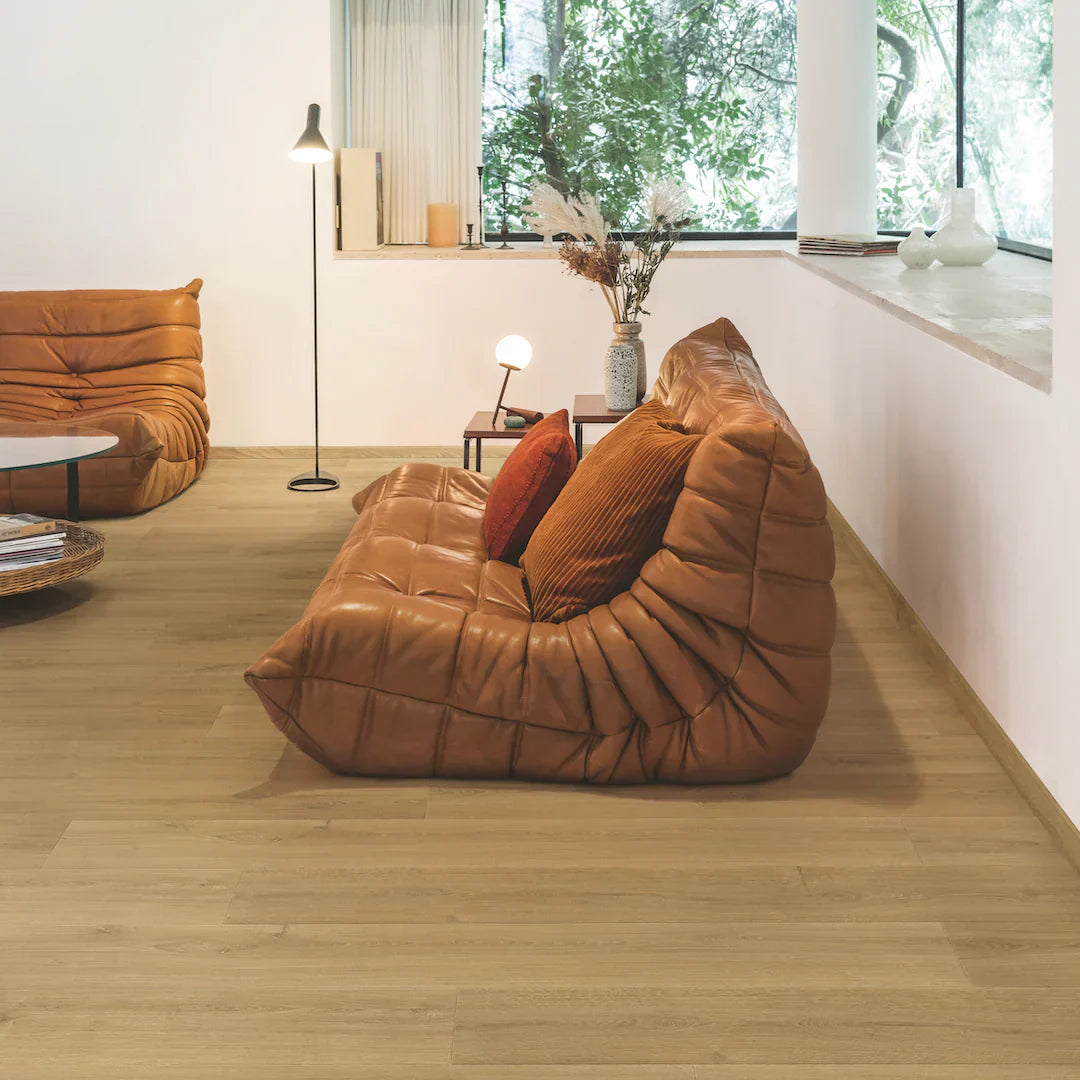
Author, Written by: Bledy (Installation Expert and Technical Writer)
Choosing the right flooring can be a daunting task, especially with so many options available today. Laminate and hybrid floors are two popular choices in the UK, each offering a blend of style, durability, and affordability. Understanding their differences, advantages, and limitations can help homeowners make an informed decision for their living spaces.
What Is Laminate Flooring?
Laminate flooring is a synthetic product designed to mimic the look of natural wood or stone. It consists of multiple layers, including a wear layer, a printed design layer, and a core layer that provides stability. Laminate is known for its affordability, easy installation, and low maintenance. Its surface is resistant to scratches and stains, making it ideal for high traffic areas and family homes.
What Are Hybrid Floors?
Hybrid flooring is a relatively newer innovation that combines the best features of laminate and vinyl. It has a rigid core, often made of stone plastic composite, with a top layer that replicates wood or stone textures. Hybrid floors are water resistant or even waterproof, making them suitable for kitchens, bathrooms, and basements where moisture can be an issue. They also offer a more natural feel underfoot compared to traditional laminate.
Durability and Moisture Resistance
Durability is a key consideration for UK homeowners. Laminate is tough against scratches and dents but is susceptible to water damage if exposed to prolonged moisture. Spills should be cleaned quickly to avoid warping or swelling.
Hybrid floors, on the other hand, are designed to handle moisture better. Their waterproof core allows them to withstand spills and damp environments without damage, making them a more versatile option for rooms prone to wet conditions.
Installation and Maintenance
Both laminate and hybrid floors are relatively easy to install, often featuring click lock systems for DIY friendly setups. Laminate requires a flat, dry subfloor for the best results, while hybrid floors can often be installed over slightly uneven surfaces due to their rigid core.
Maintenance for both is straightforward. Regular sweeping or vacuuming, combined with occasional damp mopping, keeps the floors clean. Hybrid floors may require less care in wet areas due to their superior water resistance.
Style and Design Options
Laminate flooring offers a wide variety of wood and stone looks, making it easy to match different interior styles. High definition printing technology ensures realistic textures and patterns.
Hybrid floors also come in an extensive range of designs, often featuring embossed textures that closely resemble natural wood grain or stone surfaces. They provide a modern, elegant look while retaining practicality, especially in open plan spaces that include kitchens and dining areas.
Cost Considerations
Laminate is generally more affordable, making it a popular choice for homeowners on a budget or for larger renovation projects. Hybrid flooring tends to be slightly more expensive due to its enhanced water resistance and rigid construction. However, the long term durability and versatility of hybrid floors can make them a worthwhile investment for many UK households.
Making the Right Choice
The decision between laminate and hybrid floors depends on your lifestyle, room usage, and budget. Laminate is ideal for living rooms, bedrooms, and other dry areas where a classic wood look is desired. Hybrid floors are better suited for kitchens, bathrooms, or areas with higher moisture exposure, offering a combination of style, comfort, and water resistance.
Parting Thoughts
Choosing the right floor is about balancing aesthetics, functionality, and longevity. Both laminate and hybrid floors provide attractive, durable solutions for UK homes, but understanding their specific strengths ensures you select the option that fits your household needs. With the right choice, your floors will enhance your home’s style and practicality for years to come.
About Author:
Bledy is a flooring installation expert with over 15 years of experience. He writes easy to follow guides and tips to help homeowners and professionals with flooring projects.
